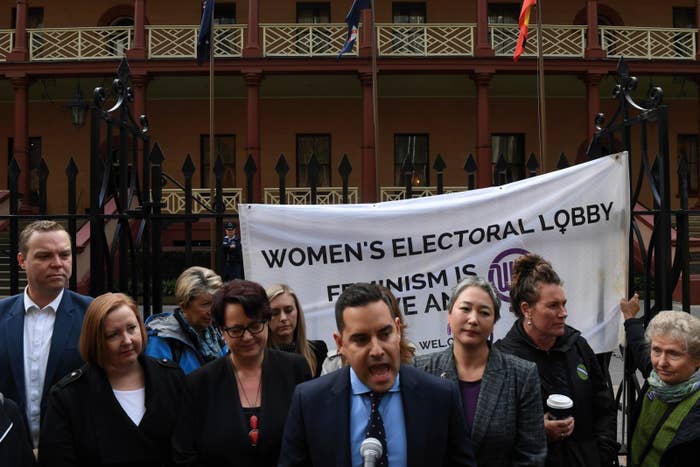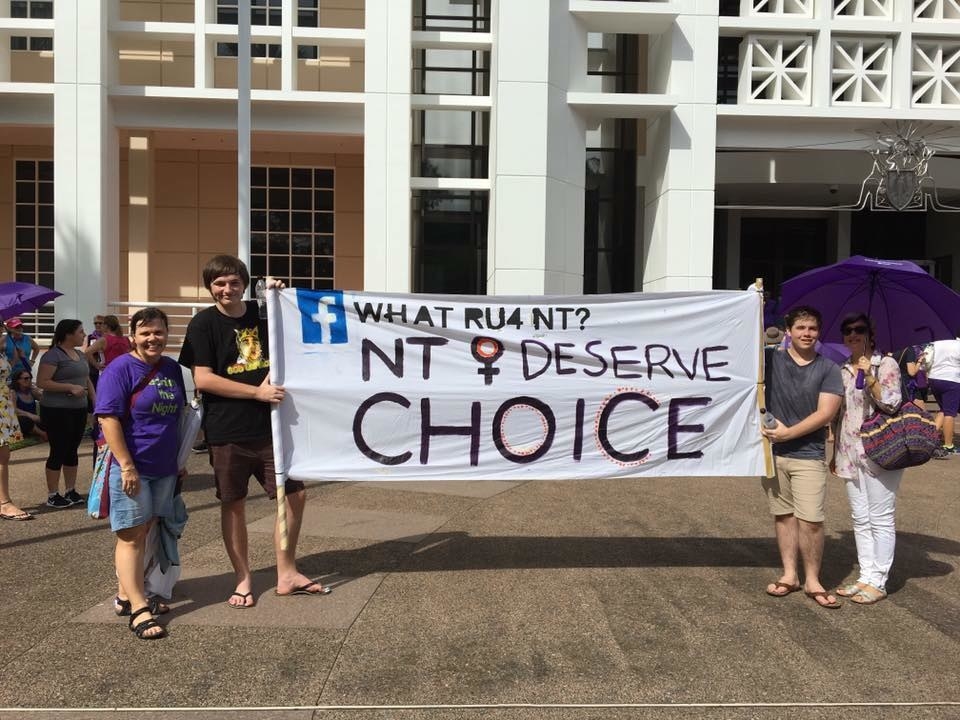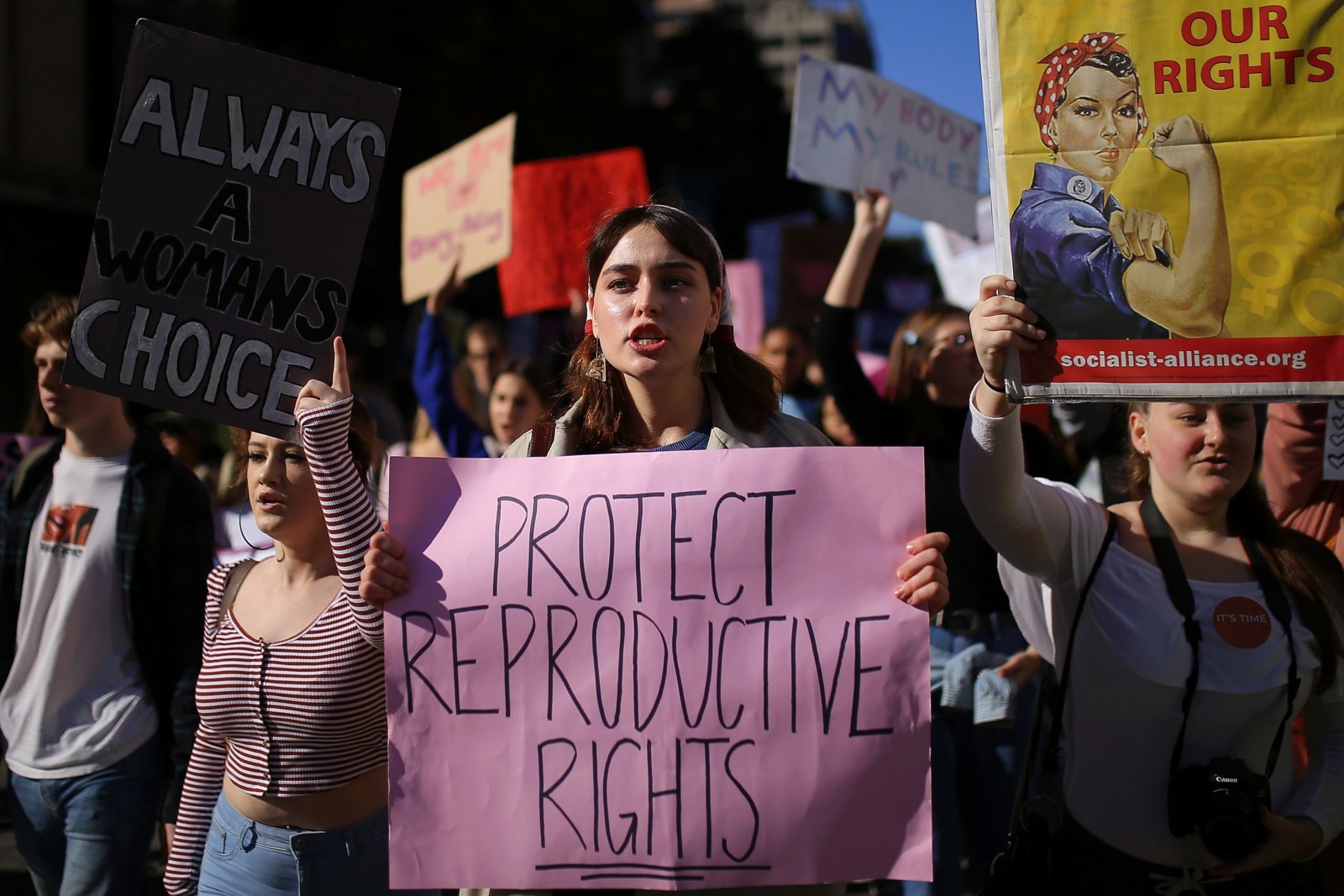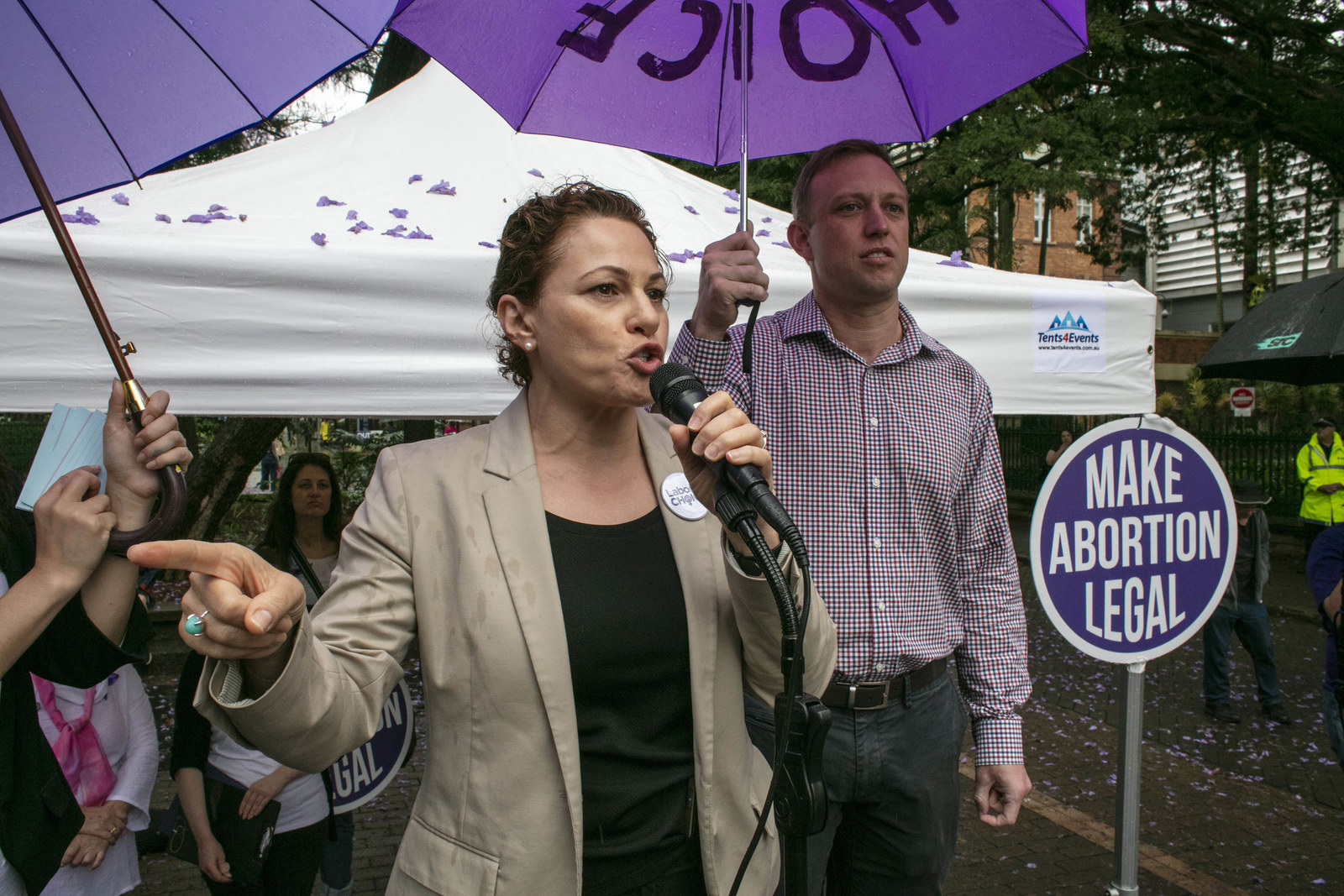Those who oppose decriminalising abortion argue that it would lead to a surge in the number of abortions, including those "up until birth". Those who want to remove the procedure from criminal legislation say it will improve reproductive healthcare for the most disadvantaged women.
Every debate about decriminalising abortion in Australia over the past 11 years has followed this script and the current bill before the New South Wales parliament is no different.
Here's what decriminalisation has actually changed in three jurisdictions around Australia.

Does it change the gestation at which abortions take place?
Anglican archbishop of Sydney Glenn Davies said the bill would allow doctors to "kill an unborn baby the day before birth", and NSW finance minister Damien Tudehope said it allowed "unrestricted abortion until the moment of birth". These claims have been repeatedly rejected by doctors and lawyers, as well as by the co-sponsors of the bill.
The bill establishes that having an abortion is not a criminal offence and allows abortions on request by a registered doctor for up to 22 weeks gestation, beyond which the patient would need the consent of two doctors.
The Royal Australian and New Zealand College of Obstetricians and Gynaecologists has stressed the 22-week threshold is "appropriate because many foetal abnormalities may not be identifiable until the 18 to 20 week anatomical ultrasound" is performed and that abortions past this gestation are rare.
"A late abortion is only ever performed when there is a compelling clinical need and should follow extensive consultation with the woman and her treating health practitioners," the college said in a statement. "The incidence of late termination is low and there is no evidence, and no reason to believe, that removing abortion from the Criminal Code will change current clinical practice, nor the number of abortions that will be performed."

Abortion was decriminalised in the Northern Territory in 2017 and since then women there have been been having abortions at an earlier gestation than previously as they can now choose to have a medical termination of pregnancy using drugs in the first nine weeks gestation, according to Family Planning NT medical director Dr Jacqueline Murdoch.
"Before 2017, medical terminations of pregnancy were effectively not legal and they weren't done at all, but we did have [surgical] abortion available in a limited number of circumstances in a hospital and two doctors had to sign off on it, which really restricted access in the NT, where there is only a small number of hospitals and a small number of specialists available," Murdoch told BuzzFeed News.
"The NT is a large geographical area, the size of France but with only 250,000 people, so people were travelling long distances and that pushed gestation back... now they're happening at an earlier gestation because you can access a medical termination in your own community."
Three in four women who have an abortion in the Territory now have it in the first nine weeks of pregnancy, data recently released by the NT Health department shows.
Of the 742 abortions that took place in the year from July 1 2017, 73% were medical terminations outside of hospitals.
Does it lead to an increase in abortions?
Catholic archbishop of Sydney Anthony Fisher said the NSW legislation was a "dream" for the abortion industry. Yet in the Northern Territory the rate of abortions has gone down since decriminalisation, Murdoch said.
"There was a decrease in abortions overall as far as we can tell," she said. "The data before 2017 wasn't great but from what we have it looks like it was around 900 per year before decriminalisation and then about 700 afterwards."
This is in line with global research from the Guttmacher Institute, which found abortion rates have fallen over the past 25 years and that countries with the most restrictive abortion laws also have the highest rates of abortion.
Stephanie Chen is a counsellor at all-options pregnancy counselling service Children by Choice in Brisbane, Queensland, where abortion was decriminalised last year.
"I previously worked as a counsellor at [The Royal Women's Hospital in Melbourne, Victoria] and after decriminalisation in 2008 the floodgates didn't open and the sky didn't fall in," Chen told BuzzFeed News. "The abortion rate remained relatively consistent."
Chen said it was too early to tell definitively whether Queensland's abortion rate had changed in the past seven months, but anecdotally there hasn't been an increase in clients calling their service post-decriminalisation.

Does it solve the access issues faced by women trying to terminate a pregnancy?
"In Victoria, changes in legislation served to legitimise existing practices and take abortion from the legal to the health domain, and I don't think there was as much of a significant change that we're seeing in Queensland with hospital provision," Chen said. "What we saw very quickly was public provision either consolidating or establishing, and a significant rise in public-private pathways where there was no surgical capacity at a hospital."
There would be a catch-up period as GPs discover they can now refer patients to the public system, she said.
"We're still seeing a lot of people contacting our services, it is just we’re more inclined to refer them to a hospital now where we know that pathway exists," she said. "We still offer loans to pregnant people who need to access money for termination of pregnancy and for contraception, so there is still a lot of advocacy to be done."
Children by Choice manager Holly Brennan said it was still a “postcode lottery” and there were still places in Queensland where it was not easy or affordable to access an abortion.
“Legislation is not the only answer, but it is part of the answer and we need to keep talking about access reform not just law reform,” Brennan told BuzzFeed News.
“We are still using a lot of our fundraising to help quite complex cases and I’m talking to the service and ministers and bureaucrats and I’m saying, ‘These are the cases that we shouldn’t be seeing at all because that is why we have a public health system.”
Murdoch said in the Northern Territory, decriminalisation wasn't a "silver bullet solution" as there are still "poor Medicare rebates" for abortion drug RU476, but the reform had been a "game changer" for women without money.
"We have been really lucky here that we have a supportive government and supportive health minister, who is offering medical abortions free of charge through Family Planning in the greater Darwin area," she said. "Travelling to Darwin or Alice Springs can take women away from their families, their jobs and their responsibilities for several days, so allowing medical terminations to happen means it can happen at a time that is appropriate, perhaps on the weekend so she can have childcare arrangements.

"Before, people who had money could just fly interstate, and those who didn't would wait for several weeks for a surgical termination."
Dr Paddy Moore is a gynaecologist and head of abortion and family planning services at The Royal Women’s Hospital and Austin Health in Melbourne. Moore said although abortion was decriminalised in Victoria 11 years ago, “as a provider we didn’t really notice a change for eight years”.
“I still get patients every week who don’t know that the law has changed, and they think it is the doctor’s role to decide, and I have to grant them a referral so they can get access,” Moore, who is also a director on the board of Family Planning Victoria, told BuzzFeed News. “I run the biggest public service [for abortions in the state] and there’s been movement elsewhere in that there are now more regional centres performing more surgical lists, so it is better than it used to be but [access] is not widespread.”
The key to improving access is not just changing the law but having hospitals willing to create referral pathways, she said.
“There was always a public service, at least since the 1920s, for abortion at The Women’s and that was in response to the septic abortion cases they used to see,” she said. “We’ve [now] got good laws, a good supportive government that has a sexual and reproductive healthcare strategy, some committed providers and committed activists which helps.”
The biggest “lingering access issue” was that women in regional, rural and remote locations still “don’t have as much choice,'' she said.
“That is, there is basically still a price on abortion so, while in theory you could do a medical abortion for the price of the script if you can get the ultrasound bulk billed, in reality, most primary care providers still do have a fee,” she said.
